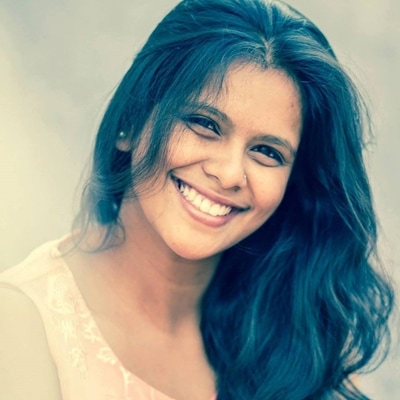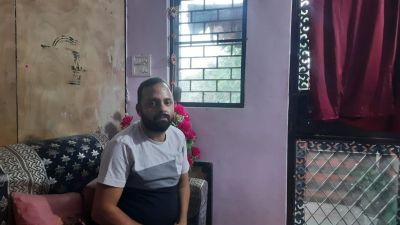- India
- International
Low carb, plant-based diet can cut risk of heart disease, cancer in diabetics, says Harvard study. Can Indians use this meal plan?
‘We were not able to increase protein to more than 30 per cent with just plant sources; we had to give additional protein supplements,’ says Dr Anoop Misra, Chairman of Fortis C-DOC Hospital for Diabetes and Allied Sciences, who has attempted a plant and dairy-based alternative
 The researchers found that it is just not enough to have a low-carbohydrate diet but where the macronutrients – carbohydrates, fats and proteins – come from also matters (Source: Getty Images/Thinkstock)
The researchers found that it is just not enough to have a low-carbohydrate diet but where the macronutrients – carbohydrates, fats and proteins – come from also matters (Source: Getty Images/Thinkstock) Switching to a low carbohydrate diet that is primarily plant-based can help in reducing deaths due to cardiovascular diseases and cancers among those with Type-2 diabetes, according to a study by Harvard T.H. Chan School of Public Health. The study is based on data about lifestyle, medical history and diet composition of over 10,000 people, who were diagnosed with diabetes while already enrolled.
WHAT THE STUDY SAYS
The researchers found fewer deaths due to cardiovascular diseases and cancers among those who consumed a low-carbohydrate diet with the all-cause mortality going down by 24 per cent. “While avoiding refined and highly-processed carbohydrates has been widely recommended to lower the risk of developing Type 2 diabetes, our study provides the first empirical evidence on how low-carb diets can help manage the progression of existing diabetes,” said lead author and research associate in the department of nutrition Yang Hu in a release.
So, what should you be eating? The researchers found that it is just not enough to have a low-carbohydrate diet but where the macronutrients – carbohydrates, fats and proteins – come from also matters. Among all low-carbohydrate diets, the health benefits were most strongly associated with those who consumed plant-based foods and high-quality carbohydrates, such as fruits, vegetables and whole grains, the researchers found.
“This study, once again, underscores the importance of diet quality when choosing among various diets for diabetes control and management,” said Qi Sun, senior author and associate professor in the Departments of Nutrition and Epidemiology, in a release.
HOW TO MOVE TO A LOW-CARB, PLANT-BASED DIET
However, moving to a plant-based low-carbohydrate diet can be extremely difficult. “If you are reducing the carbohydrate intake to say 20 per cent of your diet, you have to increase either the fats or proteins. Now, increasing the levels of fats would be akin to a Keto diet. And, now a long-term study has shown that a high fat diet can lead to an increase in saturated fat levels and up the risk of cardio-vascular diseases several fold,” says Dr Anoop Misra, Chairman of Fortis C-DOC Hospital for Diabetes and Allied Sciences. “The only other option then is to increase the levels of proteins and it is difficult to do so with just plant-based sources. Also, unlike the long-term study on Keto-like diets, we do not have studies on long-term impacts of a high protein diet,” he adds.
CAN THIS INDIAN PLANT FOOD EXPERIMENT WORK?

With a majority of Indians consuming a vegetarian diet, Dr Misra and his team had attempted to tailor a low-carb, high protein diet with only plant and dairy-based products. “We were not able to increase the protein intake to more than 30 per cent with just the vegetarian sources; we had to give additional protein supplements.” A comparison with a standard vegetarian Indian diet found that the reduction in weight, total cholesterol, along with LDL and triglyceride levels, was significantly lower in the group given the modified diet.
The low-carb, high protein diet designed by Dr Misra’s team consisted of double toned milk, almonds, vegetable salads, spinach or radish-stuffed rotis, whole green grams, grilled cottage cheese, roasted groundnuts, dal and soyabean.
“When it comes to cancers, we don’t really know what the impact of a low-carb diet is. However, what we do know for sure is that consuming a lot of red meat is linked to an increased incidence of colon cancer,” says Dr Misra.
Itra Singh, clinical nutritionist at the clinic, says, “For a high-protein, low-carb meal plan, a typical lunch would include chapatis that contain millets – bajra (pearl millet), ragi (finger millet), jowar (sorgum) and jaun (barley) for those who are non-diabetics – and a mixture of atta (wheat), bajra and jaun for diabetics. Ragi and jowar have a higher glycemic index (meaning, they can result in sugar spikes after meal). Other than that, the meal has to include a big bowl of dal, one of the richest sources of protein after dry fruits and nuts. A breakfast could include sprouts – green moong (gram) is the best as it contains a lot of proteins. And a low fat milk beverage such as coffee or a fruit shake.”
Must Read
Apr 27: Latest News
- 01
- 02
- 03
- 04
- 05









































